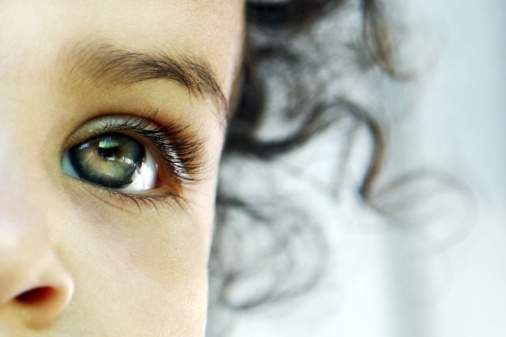By Kelly Patricia O’Meara
May 21, 2013
The American Psychiatric Association’s billing bible, the Diagnostic and Statistical Manual of Mental Disorders (DSM), finally has been outed for the fraud it is. The National Institute of Mental Health, NIMH, has declared that, “the weakness of the manual is its lack of validity.” That’s the good news.
The bad news is that while the nation’s premier mental health agency has finally admitted the uselessness of psychiatry’s manual, the Centers for Disease Control and Prevention, CDC, is still using the DSM criteria to lend credence to mental illnesses that are not based in science.
Worse still, no one appears to be questioning the implications of this diagnostic fraud on the millions of children who have been, and will continue to be, diagnosed with bogus mental illnesses, like ADHD, and then “treated” with “phunny pharma” stimulants (kiddie cocaine) and other a sundry prescription mind-altering drugs.
This is no small consideration when one understands that the Drug Enforcement Administration, DEA, and the World Health Organization (WHO), more than a decade ago, listed Ritalin and Concerta (Methylphenidate) and Adderall (Amphetamine) along with morphine, heroin, opium and cocaine as Schedule II drugs – which “have the highest abuse potential and dependence profile of all drugs that have medical utility.”
Even the author of the DSM-IV, Dr. Allen Frances, has been spearheading a full-frontal attack on the newest version of the DSM, specifically targeting the changes to the alleged ADHD mental illness, stating, “we’re already over diagnosing ADHD. Almost 20 percent of teen boys get the diagnosis of ADHD, and about 10 percent of boys are on stimulant drugs. We don’t need to make it easier to diagnose ADHD.” Frances further explained, “If we decided as a society that the use of stimulants is good, it shouldn’t be done through a fake medical diagnosis.”
One might presume that with Dr. Frances’ stinging admissions, along with NIMH’s public statement that the DSM “lacks validity”—that it lacks science—that some lawmaking body, in an effort to protect children from fraudulent mental health care, would step up to the plate and initiate an inquiry into psychiatry’s bogus diagnosing.
Not only has this not happened but, rather, quite the opposite has occurred. In what can only be deduced as a pathetic attempt to rescue the APA from becoming an utter joke within the medical community, the CDC released a “first-ever” study about the growing epidemic of childhood mental disorders, which (you guessed it) is based on data of people diagnosed with mental disorders derived from the fraudulent DSM.
Perhaps more interesting is that the CDC does not list a single psychiatric diagnosis under its lists of diseases. ADHD, which the CDC reports in the recently released study “was the most prevalent current diagnosis among children aged 3-17 years,” is described on the CDC website as “one of the most common neurobehavioral disorders of childhood.” The CDC continues in its description of ADHD saying, “Scientists are studying the causes…” and “there is no test to diagnose ADHD.”
Yep, that’s right. Like every other psychiatric diagnosis, there is no test for ADHD and nobody knows the cause of the alleged childhood mental illness. Still, the CDC explains the study is “an important step to better understand children’s mental disorders, identify gaps in data, and develop public health strategies to protect and promote children’s mental health….”
With all due respect to the CDC, what is important to understand about the study is that the data used to come to its conclusions, that “1 in 5 children in the U.S. suffers from a mental disorder,” is not based in science. Those who participated in the study received diagnoses subjectively pulled from a psychiatric diagnosing manual that has been summarily dismissed by NIMH, the nation’s leading mental health agency, and its equivalent in Europe, the British Psychological Society.
Furthermore, one only need review the “CDC Pledge” and its “Core Values” to fully grasp the blatant psychiatric fraud the CDC appears to be promoting. According to the agency’s website, the CDC pledges “to base all public health decisions on the highest quality scientific data, openly and objectively derived.” And, under its “Core Values” page, the CDC states “we ensure that our research and our services are based on sound science…”
“Highest quality scientific data?” “Research and services based on sound science?” What part of subjective diagnosing is scientific? According to NIMH, the nation’s leading mental health research body, psychiatry’s book of mental disorders “lacks validity” and it will no longer be using the manual.
One can only wonder at the disconnect between federal agencies, which, in itself, screams for an investigation. One also might begin to question what “science” is being used when the agency actually is researching real diseases?
The CDC, for all its good intentions—” to develop public health strategies to protect and promote children’s mental health”—is not living up to its own stated standards, leaving the nation’s children at continued risk of being labeled with fraudulent psychiatric diagnoses and drugged with extremely dangerous mind-altering drugs.
—
Kelly Patricia O’Meara is an award winning, former investigative reporter for the Washington Times, Insight Magazine, penning dozens of articles exposing the fraud of psychiatric diagnosis and the dangers of the psychiatric drugs – including her ground-breaking 1999 cover story, Guns & Doses, exposing the link between psychiatric drugs and acts of senseless violence. She is also the author of the highly acclaimed book, Psyched Out: How Psychiatry Sells Mental Illness and Pushes Pills that Kill. Prior to working as an investigative journalist, O’Meara spent sixteen years on Capitol Hill as a congressional staffer to four Members of Congress. She holds a B.S. in Political Science from the University of Maryland.



SHARE YOUR STORY/COMMENT